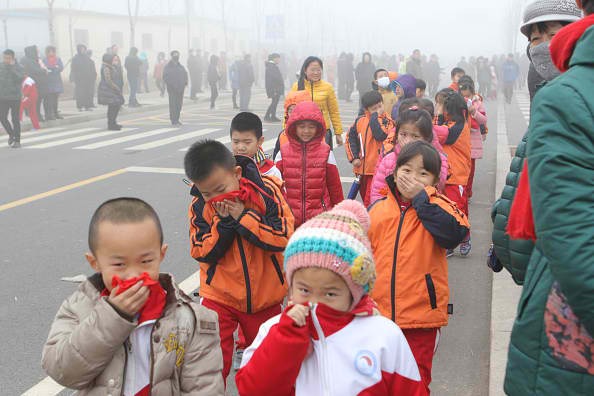Just the past Spring Festival, air pollution in Beijing and other urbanized areas in China reached critical levels and life-threatening. The worsening air quality is forcing families to relocate.
"I don't want my child to suffer from environmental pollution like I did when I was young," said Xu Ke, a founder of a start-up company and a resident of Beijing for 16 years.
He and his wife decided to move to Shenzhen because the past incident of red alerts prompted him to make a decision to change their home base. They have a 3-year-old daughter.
Xu said, "Our daughter started to wear masks when she was only one year old. She doesn't like it, and when we need to go out on a smoggy day, she cries and refuses to wear it, which makes me feel sad."
He added that the situation was "really depressing" as they prepare to leave the city by the end of the year.
There are other Beijing city dwellers who decided to leave the country altogether. This is what happened to a stay-at-home mom named Sharon Long who moved to Belgium.
She recalled, "We had the air purifier running all day, and every time our son wanted to go out and play, we would check the weather and put a mask on him, but that still didn't change anything."
"Although life in Belgium is very different from life in Beijing, at least we don't have to worry about our family's health," she added.
Xu is thankful that Beijing is not the only city where one can find decent work. With the fast urbanization of many Chinese cities like Hangzhou and Chengdu, there are more options now than before.
"Popular second-tier cities, such as Hangzhou in Zhejiang Province and Chengdu in Sichuan Province, are all good options. Beijing is no longer the only one," Xu said.
The International Labor Organization predicted that the fast pace of urbanization in China will likely lead to more occupational health hazards among the workforce.




























